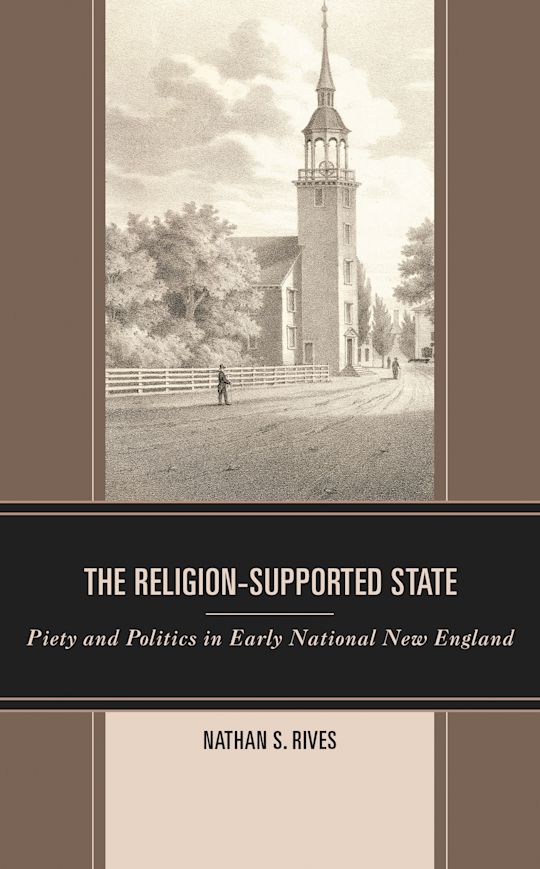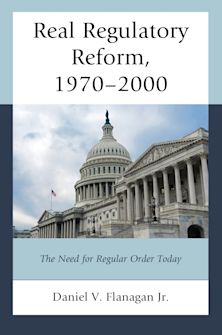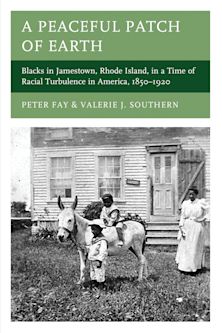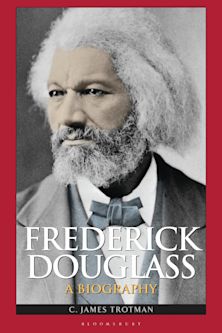- Home
- ACADEMIC
- History
- United States History
- The Religion-Supported State
The Religion-Supported State
Piety and Politics in Early National New England
The Religion-Supported State
Piety and Politics in Early National New England
This product is usually dispatched within 1 week
- Delivery and returns info
-
Free CA delivery on orders $40 or over
You must sign in to add this item to your wishlist. Please sign in or create an account
Description
Between 1776 and 1850, the people, politicians, and clergy of New England transformed the relationship between church and state. They did not simply replace their religious establishments with voluntary churches and organizations. Instead, as they collided over disestablishment, Sunday laws, and antislavery, they built the foundation of what the author describes as a religion-supported state. Religious tolerance and pluralism coexisted in the religion-supported state with religious anxiety and controversy. Questions of religious liberty were shaped by public debates among evangelicals, Unitarians, Universalists, deists, and others about the moral implications of religious truth and error. The author traces the shifting, situational political alliances they constructed to protect the moral core of their competing truths. New England's religion-supported state still resonates in the United States in the twenty-first century.
Table of Contents
Chapter 2. The Spirit of the Pilgrims: State-Supported Religion in New England
Chapter 3. The Politics of Religious Authority: Reason, Revelation, and the Problem of Rationalism
Chapter 4. The Politics of Moral Reasoning: Heaven and Hell, and the Morality In-Between
Chapter 5. The Partisan Agenda: Federalists, Republicans, and Religion
Chapter 6. The Unitarian Paradox: The Liberal Defense of State-Supported Religion in Massachusetts
Chapter 7. The Voluntary Solution: Civil Society and the Religion-Supported State
Chapter 8. The Sunday Police: Sabbatarians, Anti-Sabbatarians, and Voluntary Religion
Chapter 9. The Antislavery Dilemma: The Moral Crisis of the Religion-Supported State
Product details
| Published | Sep 01 2022 |
|---|---|
| Format | Hardback |
| Edition | 1st |
| Extent | 292 |
| ISBN | 9781793655240 |
| Imprint | Lexington Books |
| Illustrations | 4 b/w photos; |
| Dimensions | 237 x 158 mm |
| Series | Religion in American History |
| Publisher | Bloomsbury Publishing |
About the contributors
Reviews
-
A superbly written, detailed examination of the transition from the establishment model to a religion-supported state in New England. He effectively demonstrates that religion remained an integral part of the political process [and] provides new, invaluable insights into the role of theology inorganizing and guiding these moral reform societies that were crucial to this new paradigm.
Journal of Religious History
-
Nathan Rives's work offers timely and original reflections on the political implications of religious ideas in the early American republic. His rigorous research yields important new perspectives on the campaigns for disestablishment and sabbatarianism in New England and reveals the surprising links between the contests over those two issues and antislavery activism after 1830.
Christine Leigh Heyrman, University of Delaware
-
With thorough research and especially clear argumentation, Nathan Rives provides a compelling account of the separation of church and state in American history. By demonstrating the importance of contrasting claims about religious truth in early national New England, Rives shows that conservative and liberal Protestants, defenders of church establishment and their opponents, and (eventually) advocates on every side of the slavery debate all took for granted, though in situationally different ways, what he calls “the religion-supported state.” His book is as convincing about the past as it is timely for the present.
Mark Noll, author of America's Book: The Rise and Decline of a Bible Civilization, 1794-1911
-
In this lively and convincingly argued book, Nathan Rives asks us to reconsider the well-known story of religious disestablishment. Whereas we are familiar with the demise of state-supported religion, Rives offers a new narrative: that of the religion-supported state, in which pious citizens safeguard public morality and national virtue. Drawing upon an impressive scope of religious and political print, Rives shows how Americans in the early republic confronted competing religious and civic truths as they asked a common question: if the state cannot protect churches, how can churchly Americans sustain a godly state? As he explores multitudes of answers to that question, Rives casts the church-state relationship in a new light.
Shelby Balik, Metropolitan State University in Denver
-
How can one support freedom of conscience while insisting that the state recognize that some religious beliefs are truer than others? In lucid and lively prose, Nathan Rives shows how New England clergy of many different religious convictions did just that, moving away from the confines of state-supported religion even as they tried to use the state to foster their own theologically grounded moral mandates. Creating neither an officially Christian nation nor an entirely secular one, New Englanders produced what Rives calls a religion-supported state. Rives offers a compelling account of the heated arguments over church disestablishment, the delivery of mail on Sunday, and antislavery--conflicts that shaped the relationship between religion and politics before 1850. While the hot-button topics have changed, contemporary efforts to use political means to promote theological ends reveal the lasting framework of the religion-supported state. This informative book tells a fascinating and relevant story about the American blend of religion and politics in a formative era.
Kirsten Fischer, University of Minnesota

ONLINE RESOURCES
Bloomsbury Collections
This book is available on Bloomsbury Collections where your library has access.



































